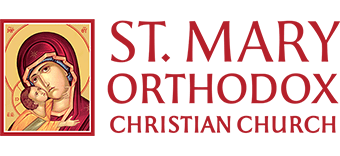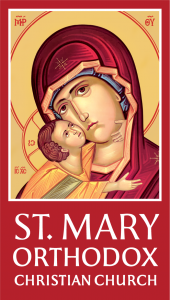Metropolitan Boulos (Bandali): A Fruitful Seed in Antioch
~By Metropolitan Saba (Isper)
Metropolitan Boulos (1929-2008) served as metropolitan of the Archdiocese of Akkar and Dependencies across Lebanon and Syria.
If you love your neighbor less than you love yourself, then it would be difficult for you to write about a person like Metropolitan Boulos (Bandali), who lived Christ’s second great commandment, “Love your neighbor as yourself,” in its absolute evangelical sense, which is rarely duplicated throughout history. He embodied the phrase of the Bible that says, “Greater love has no one than this: to lay down one’s life for one’s friends” (John 15:13).
What is remarkable about Metropolitan Boulos is his complete and constant self-forgetfulness for the sake of his fellow man. Requests made to this merciful metropolitan did not stop for a single moment throughout his life on earth. This means that he never once cared for himself because he was constantly preoccupied with the souls of others. Those who lived closely with him described his home, his room, his clothes, his food, and his poverty in a way that reminds us of the stories of unmercenary saints.
For those who claim that this kind of love is impossible in our self-centered age, Metropolitan Boulos, with his holy life, stands as living proof of the error of their claim, and as a witness to the extent of the work of the Holy Spirit in the hearts of God’s pure ones.
I was a high school freshman when I first heard of “Father” Boulos Bandali. Young people from Koura, North Lebanon, who were displaced with their families due to the war in Lebanon (1975–77), told us about a priest in Bishmizine, where people rush from their villages to participate in his liturgy. They described him as the angels are described. My friends and I thought that they were exaggerating. But when we met him for the first time in Latakia, Syria, while he was on a spiritual visit to encourage us to practice confession, we were amazed at what we saw. How does a person live with all this meekness? From where does he get all this tenderness? How does he possess this amount of kindness and a constant smile? In our young minds, we could only imagine him coming from the icons of our glorious Church.
We learned from him the art of listening, and when we grew up, we understood how much humility and self-denial listening requires. He would listen with sensitivity to the confessions of the youth and would try with all delicacy to direct us to the point that we sometimes felt like he was the one confessing, not us. I remember that, through his gentleness, he once made me ashamed of my sin and cause me to despise it very much, without reprimanding me with a single harsh word, although I deserved more than one harsh word at the time.
These encounters came within the framework of the Orthodox Youth Movement and its activities. I remember the way we used to rush to him when he arrived to receive his blessing! On the day we heard that he became Metropolitan of Akkar, we, the youth of Latakia, decided to go and congratulate him after his enthronement. At that time, most of us had experienced confession at least once with him. We met him in a very small village in Wadi al-Nasara, called Bhazina. He had been in the archdiocese for less than a month. He came to celebrate the Divine Liturgy in that village. We were shocked by how small and poor the church was, from the liturgical items to the chanting. We found him celebrating the Liturgy as if he were in heaven, not aware of the poverty around him. It took me years and great toil to learn how to serve in such poverty in my former archdiocese (Bosra, Houran and Jabal Al-Arab, Syria). I could not see beyond the material beauty to reach the sight of the “Beloved Son,” Who transcends all beauty.
He shook our hands, one by one, after the Liturgy. Our presence brought him indescribable joy. He made us feel that we were his consolation, and some of us believed it!
We were later startled by something we learned about him. He stayed up at night writing letters to his spiritual children after his pastoral status as a bishop no longer permitted him to meet them in person as before. We learned that his bed was in a car, not in a bedroom. He spent most of his time sleeping being driven in a car from one region to another in his vast archdiocese (102 parishes) which extended across Lebanon and Syria.
Metropolitan Boulos planted in the Church a seed, without which the Church could not grow spiritually and physically. He gave great care to institutions, such as the Akkar Diocesan School, which he established and expanded. It is now one of the most successful schools in North Lebanon. But his focus on human beings was the most important. Everything he had was for his fellow man. For him, there was nothing—no institution, no money, no endowment—unless it was for the sake of the neighbor, a service to the neighbor, and a way for the salvation of the neighbor.
The love he implanted, the kindness he distributed, the tenderness he gave—all are images of the compassionate face of Jesus, the Good Shepherd. The God whom Metropolitan Boulos (Bandali) worshiped is the God of love, to Whom all should bow in reverence and veneration. May God help us through his intercessions.




